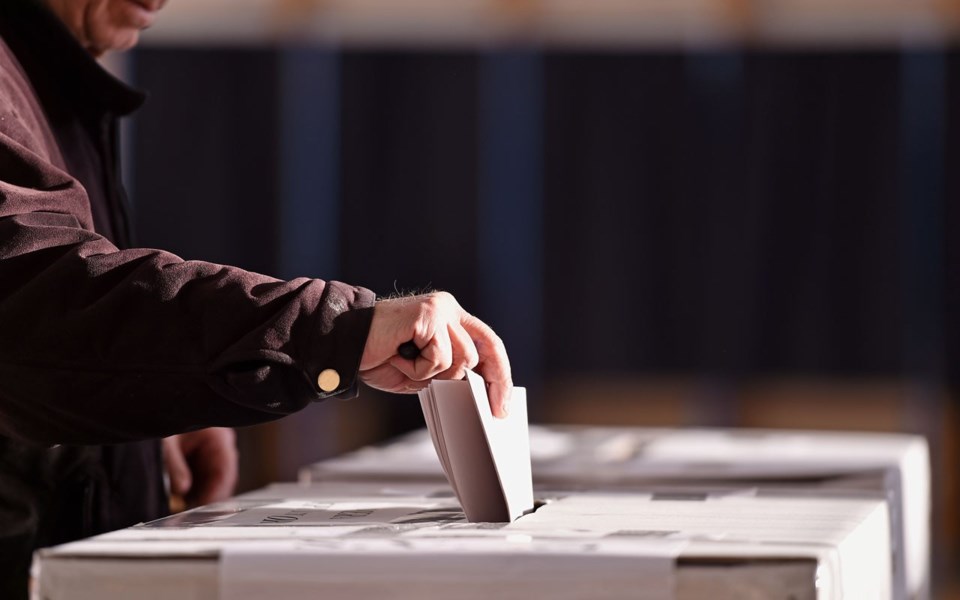We are two months out from a federal election and locally, we don't yet have candidates from the Liberal or NDP parties.
For the Green Party we have Dana Taylor; there's Gabrielle Loren for the Conservatives; and Robert (Doug) Bebb for the People's Party of Canada.
Sigh.
Canada is not perfect—there is much we can improve as we head into another election. But honestly, I am the only one feeling this election is like being Sisyphus?
On our national agenda, we still have the ongoing development of the Alberta tarsands and the pipeline expansions that seem to go with it (Hello! Climate change—isn't it time for political parties to stop kowtowing to big business?), the logging of old-growth forests (more kowtowing), broken promises on electoral reform, continued deficits ($19.8 billion in this fiscal year) and the many questionable positions of those leading our political parties at the federal level to contend with.
One only has to consider the SNC-Lavalin affair, especially in light of last week's finding by Canada's ethics watchdog that Canada's Prime Minter Justin Trudeau violated the Conflict of Interest Act by improperly pressuring former attorney general Jody Wilson-Raybould to halt the criminal prosecution of SNC-Lavalin, to feel heavy hearted as a voter.
This stinging finding is clearly damaging to the Liberals as we head toward the Oct. 21 election. It is, after all, the second time Trudeau has run afoul of conflict of interest. In 2017, Mary Dawson, the former ethics commissioner, found Trudeau had contravened four sections of the Conflict of Interest Act when he and his family went on vacation to a private island in the Bahamas owned by the Aga Khan, the spiritual leader of Ismaili Muslims.
Trudeau apologized then, but not now. This time, he said he was protecting Canadian jobs—and while that is a powerful election message for any politician, it's not going to be enough heading into this election.
The Liberals were elected, after all, on a platform of promising to do things differently. Canada was sick of a Stephen Harper Conservative government that centralized power with a leader, and had little room for Parliament.
Trudeau's actions in SNC-Lavalin, which exceeded the parameters of his office in trying to influence a decision that melded politics and business, are damning.
As I see it, the only thing that might make the electorate swallow its distaste and vote Liberal is the lack of options for where to place votes. Maybe this will be the Green Party of Canada's opportunity?
For this reason, and a few others, this election is unlikely to be a run-of-the-mill affair. It is possible that it will be an election focused on issues rather than leaders. Thanks to the credibility-defying scandals that have come out of the White House since President Donald Trump's election, voters seem to be able to partition scandals and their choice of leaders. Are we becoming desensitized to immoral and perhaps even unlawful behaviour in our leaders?
There are always constants in the issues-ledger on Election Day—jobs, healthcare, security. But this election, I believe, sees climate change near the top. Let's not forget the Liberals bought a pipeline for $4.5 billion in 2015, a decision that seems to make a mockery of Canada's climate change goals.
However, Trudeau's Liberals continue to say they believe global warming poses a direct threat to Canada and to the planet. And they are demanding that the provinces put a price on carbon emissions, or Ottawa will do it for them.
Andrew Scheer's Conservatives, on the other hand, believe that taxing carbon is a burden on consumers and business. Canada's contribution to global warming is minuscule, he said, arguing that there are better, less-fiscally damaging ways to reduce emissions.
This election is likely to also offer up a good dose of negative advertising across all mediums. And why not? It appeals to voters' emotions as opposed to rational thought—and that may be a safer ploy that asking us to consider who to vote for on a rational basis (few good choices there).
Our federal electoral landscape is a challenge, and that means now more than ever that voters need to get informed and cast a ballot.




